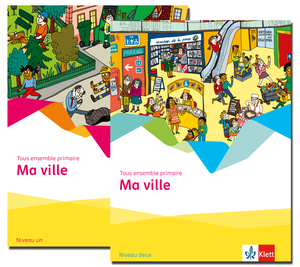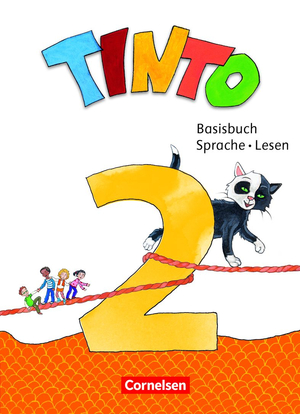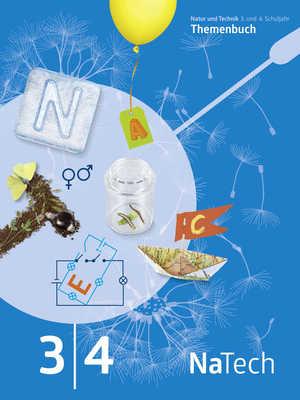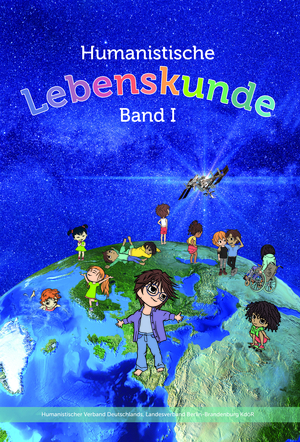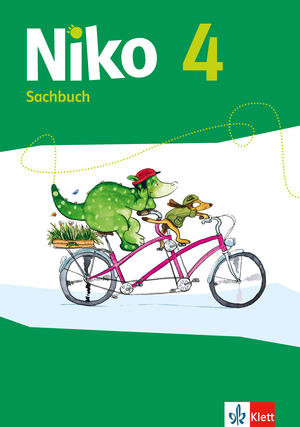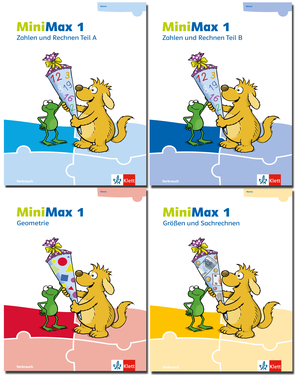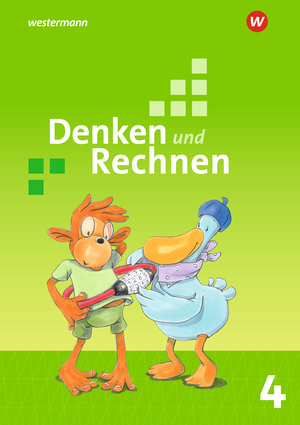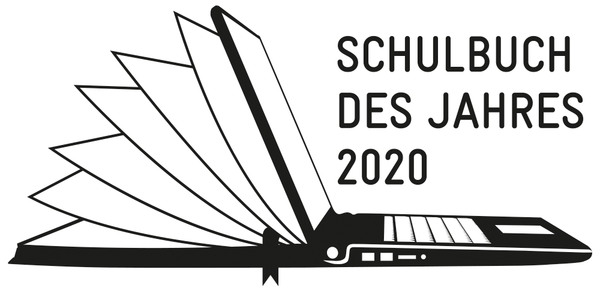-
Category Languages
1ST PLACE

Tous ensemble primaire. Ma ville
By Falk Staub (ed.), Julie Chauvet
Ernst Klett, 2019978-3-12-522204-5
The focus placed on listening comprehension in Tous ensemble. Ma ville is one of the distinctive and innovative learning concepts for French teaching at primary school level that sets this book apart. Above all, primary school children learn to playfully access new language skills through intensively studying the rhythm and intonation of the French language. The pupils are given particular motivation and encouragement by repeatedly being made aware of what they have already learned. This primary school book also takes the learning speeds of individual pupils into consideration: its four units are each broken down into two levels of difficulty. The inclusion of numerous thematically relevant pictures and games lends variety to lessons. Teachers will appreciate the flexibility with which the curricular content can be applied to lessons and the book’s generous layout.
2ND PLACE

Tinto 2 Basisbuch Sprache, Lesen
By Dr Rüdiger Urbanek, Linda Anders, Vanessa Bollenberg, Ursula Brinkmann, Nele Granseyer, Gabriele Müller
Cornelsen, 2019978-3-06-084345-9
Tinto 2 Basisbuch Sprache, Lesen is a high quality language and reading book for German teaching in year 2. The book succeeds in addressing all aspects of language acquisition (speaking, reading, writing and listening) equally without overtaxing pupils. It also gradually expands pupils’ basic vocabulary. Another feature of the book is its division of all chapters into three levels of difficulty, whilst also taking into consideration pupils learning German as a second language. A comprehensive key with pictograms for instructions and differentiation as well as colour-coded article identifiers enable easy orientation within the book and accompanying material, independent of language level or ability. The different themes are well designed with appealing illustrations. This language book also provides systematic methodology and strategy training.
-
Category General Studies
1ST PLACE

NaTech 3/4
By Katrin Bölsterli Bardey, Patric Brugger, Maja Brückmann, Eva von Fischer, Thomas Flory, Maria Jakober, Susanne Metzger, Lorenz Möschler, Nicole Müller, Stephanie Naki, Christof Oser, Gaby Schweizer, Nicole Schwery, Sebastian Tempelmann, Markus Vetterli, Juliette Vogel, Claudia Zenklusen, Annina Zollinger
Schulverlag plus AG, Lehrmittelverlag Zürich, 2018978-3-03713-719-2
978-3-292-00811-4NaTech (Nature and Technology) is a textbook series for Swiss primary schools, which addresses natural science teaching for years 1 to 6. The series covers all skill areas stipulated in Curriculum 21 (German-language Swiss cantons) through short, clearly arranged and attractively designed content. Each volume contains teaching material for two school years and is divided into ten self-contained units. This volume is designed for years 3 to 4 and teaches the basics of natural science and technology in an age-appropriate way. The book reflects the world in which primary school children live and helps them deal more intensively with topics that they previously could only correlate with one specific area of life. It successfully teaches skills such as: reflection and strategic action – sometimes including topics not generally taught in primary science or through questions such as 'What’s good for you?’ posed in a range of contexts.
2ND PLACE

Humanistische Lebenskunde Band 1
ByPatricia Block, Katrin Filler, Katharina Kavalirek, Sabine Klingelhöfer, Jaap Schilt, Sven Thale
HVD Humanistische Verband Deutschlands, 2019978-3-924041-43-4
The primary aim of the subject ‘Humanistic Life Science’, which is taught in the Federal states of Berlin and Brandenburg, is to introduce pupils to a wide range of world-views and to discuss them. The nature of the questions and stimuli for further reflection on the themes addressed in lessons are central to assessment. This textbook for years 1 and 2, which is produced by the Humanistischen Verband Deutschland (HVD) (The German Humanist Association), meets this requirement and encourages primary school children to philosophise and reflect through the use of well-structured questions. In addition to the text the book makes ample use of graphics. Audio recordings are also available to help with understanding and to illustrate the content. Teachers can also obtain additional material to help with lesson planning and implementation. Above all, this primary school textbook provides teachers with stimuli for discussion-based teaching based on the curriculum.
3RD PLACE

Niko Sachbuch 4
By Julia Birchinger, Hermann Krekeler, Sarah Limberg, Anne Rommel, Anna Urakov
Ernst Klett, 2018978-3-12-310606-4
This textbook, suitable for teaching primary science and humanities in eight Federal states in Germany skilfully references current topics from the everyday lives of primary pupils. Exercises are each divided into three ability levels, allowing pupils and teachers to differentiate between individual skill areas. The book’s layout enables it to calmly present the different themes, which are supported by easy to understand exercises and appropriate language for year 4 pupils. Niko 4 stands out from other primary science books by striving to improve pupils’ linguistic skills and by providing pupils with a wide range of relevant material. It discusses specific questions from a range of perspectives and includes content from other thematically relevant approaches. The book’s concluding methods section clearly presents subject-specific working methods and references content from earlier units.
-
Category Mathematics
1ST PLACE

MiniMax 1
By Heidrun Engel, Thomas Jung, Erik Röhrich-Zorn, Sabine Dietrich, Maike Schumacher, Christiane Winnewisser, Uwe Neißl
Ernst Klett, 2018978-3-12-280630-9
The lesson concept behind MiniMax 1, a book for year one mathematics teaching is based on a very clear and comprehensible structure. It presents exercises that are practical and easy to understand, and through which pupils learn specific arithmetic strategies. A particular feature of the book is that it introduces relational concepts such as class inclusion for geometric objects relatively early, yet succeeds in presenting the topic in a comprehensible and age-appropriate manner. Using many self-explanatory illustrations and demonstrating good harmonisation between text and images, even complex ideas are made understandable for pupils. The book frequently provides suggestions for working in pairs, as do the ‘Mitmach-Kartei’ and the ‘Maxibuch’, which not only support subject-specific skills, but also enable pupils to learn through discussions with others and through exchanging ideas. The diversity of exercises set at different levels of difficulty and for different skill sets make this an appealing primary school textbook.
2ND PLACE

Denken und Rechnen 4
By Gudrun Buschmeier, Julia Hacker, Susanne Kuß, Claudia Lack, Roswitha Lammel, Alexandra Weiß, Maria Wichmann
Westermann, 2019978-3-14-126324-4
Denken und Rechnen 4 is designed for mathematics teaching in year 4 and is a student-oriented and very professional educational medium. Primary level pupils will find demanding topics and challenging exercises. The main focus of the book is to teach mathematic processes in a way that children find exiting: its successful approach applies these processes to relevant topics in the children’s everyday lives and illustrates the relationships between specific themes. This enables pupils to gain an understanding of the integrative character of mathematics. The in depth work with different illustrative methods (diagrams, tables, drawings) can be used by the teacher to support varied and descriptive lessons. In addition to arithmetic, linguistic aspects are also addressed: numerous and varied exercises stimulate discussion and ‘word stores’ (Wortspeicher) encourage learning of subject-specific vocabulary in all units.
